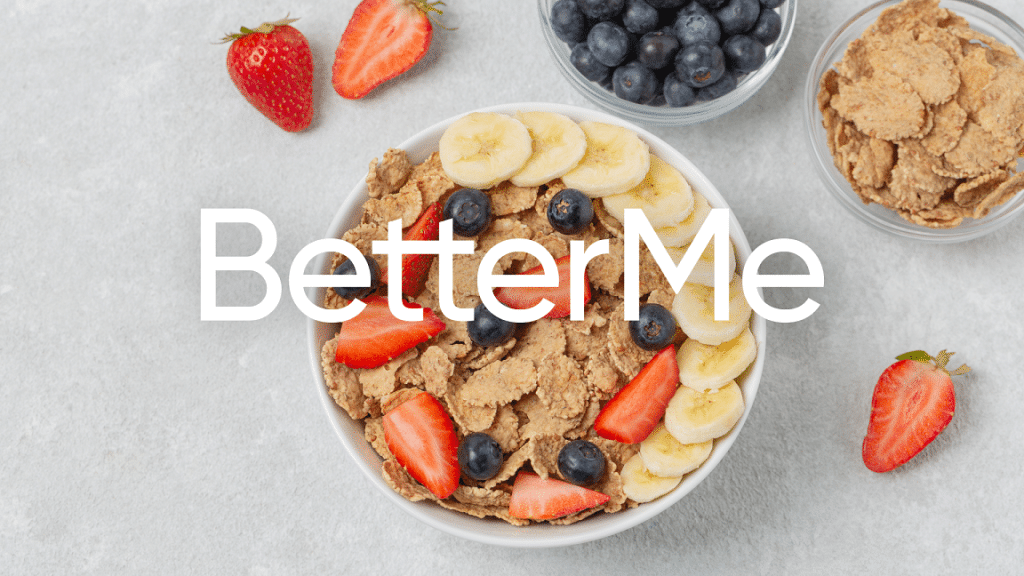Quitting smoking isn’t easy, but there are lifestyle changes that can help you quit smoking for good. By making some simple changes to your diet, you’ll be on the road to quitting for good. The best foods are healthy, nourishing, and filling. The idea is to satiate your hunger and avoid triggers while giving your body all the nutrients it needs. Foods that are high in fiber, protein, and healthy fats help you stay full longer while also making you less likely to have food cravings. Gulping down a quick cup of coffee or soda might be enough to quench your thirst but will actually leave you feeling hungry or thirsty shortly after.
Here are eight foods that can make it easier to quit smoking and five foods to avoid:
Foods To Eat While Quitting Smoking
Here are the best food choices for smokers:
Garlic And Onions
Garlic and onions contain an amino acid called cysteine, which is known to break up mucus in the lungs. This can help reduce coughing and irritation when quitting smoking (3).
Vegetables such as onions, garlic, and leeks are also packed with vitamin C, which supports the immune system and may help the body recover from the damage caused by cigarettes (17).
Tofu
Tofu is a healthy protein that might help reduce withdrawal symptoms, including cravings. It contains the amino acid L-glutamine, which is sometimes considered conditionally essential during times of stress (13).
Fruits And Vegetables
Smokers tend to eat fewer fruits and vegetables than non-smokers. This may be because eating worsens the taste of cigarettes, according to one study (4).
But when you quit smoking, it’s important to increase the number of fruits and vegetables your body is getting. Fruits and vegetables contain antioxidants like vitamins A and C, which can help reduce damage caused by free radicals (4).
Whole-Grain Products
Eating whole grains, such as brown rice or oatmeal, which contain a lot of fiber, can help ease constipation and fight weight gain (18).
Tart Cherry Juice
Tart cherry juice is high in melatonin and vitamin C, both of which may help regulate the body’s natural sleep patterns and improve mood. Drinking tart cherry juice or eating cherries may reduce feelings of anxiety that are often associated with cigarette cravings (1).
Cinnamon
Cinnamon is another food that can help with cravings because it may mimic the effect of insulin or improve insulin sensitivity which helps improve blood sugar levels. High blood sugar levels are often associated with cigarette cravings, so cinnamon can help fight this (7).
Frozen Grapes
Quitting smoking can lead to cravings for sweets. To fight those cravings, try eating frozen grapes. The coldness of the grapes will reduce cigarette cravings.
Popcorn
Quitting smoking may trigger cravings for snacks. Popcorn, especially the air-popped variety, can help satisfy those cravings. Air-popped popcorn is low in calories, which will help reduce the risk of weight gain after quitting smoking (8).
High-Fiber Foods
High fiber foods improve digestion while keeping your blood sugar stabilized, which helps keep energy levels high and cravings under control (11). Some examples of high-fiber foods include broccoli, almonds, and lentils.
Eggs
Eggs contain high amounts of choline, which is shown to improve the brain’s ability to learn while supporting overall mental health and memory. Choline may also help reduce cravings for nicotine (15).
Green Tea
Green tea contains an amino acid known as L-theanine, which reduces stress and anxiety and may help smokers quit smoking. L-theanine also has the potential to improve overall mental health and sleep quality (5).
Foods To Avoid When Quitting Smoking
Smokers tend to eat a lot of unhealthy foods, but quitting should be an opportunity to completely revamp your diet.
Here are the foods that you should avoid when quitting smoking:
Caffeine
Avoid caffeine because it can make your body more jittery and irritable after quitting smoking. Caffeine is also associated with cravings and cigarette use, which might make it more difficult to quit (12).
Processed Foods
Avoid processed foods because they contain high amounts of sodium and saturated fats, both of which can contribute to health problems (16). Furthermore, processed foods don’t contain the necessary vitamins and minerals that can help fight withdrawal symptoms.
Alcohol
Alcohol is another beverage to avoid when quitting smoking because it dehydrates the body and reduces inhibitions, which can lead to more intense cravings for cigarettes. It also contains empty calories that will only reduce your overall health while you quit smoking (10).
Whether you’re a workout beast or just a beginner making your first foray into the world of fitness and dieting – BetterMe has a lot to offer to both newbies and experts! Install the app and experience the versatility first-hand!
Sugar
Quitting smoking can lead to sugar cravings, so avoid foods that contain high amounts of sugar. Sugary foods will give you a short burst of energy but can also create other health problems, such as weight gain and high blood pressure (14).
Low-Calorie Diet Foods
Don’t follow a diet that is low in calories. This can cause fatigue, irritability, and depression (6). When quitting smoking, it’s important to nourish the body with healthy foods that will not only give you energy but also help fight withdrawal symptoms.
How To Get Through The Rough Spots After Quitting Smoking?
While eating healthy foods and avoiding unhealthy ones is a great idea, you might still struggle with the temptation of cigarettes.
Here are a few tips to help you overcome temptation and stay clean:
Spend Time In Smoke-Free Environments
There are various places where tobacco products are not allowed, such as bars, restaurants, and malls. Spend time in places like this because they contain people who don’t smoke – or at least, you won’t be tempted to light up if the people around you aren’t smoking either.
Practice More Self Care
In the days following your last cigarette, you might feel exhausted because the body is healing from nicotine withdrawal. Practice more self-care by taking a long bath or going for a walk to help improve your overall mental and physical health after quitting smoking.
Exercise To Improve Your Mood
When quitting smoking, it’s also important to exercise to improve your mood and overall health. Start with something simple like taking a walk every day while you’re quitting smoking and then begin exercising after your cravings are under control.
Exercise releases endorphins in the body, which not only improve your mood but also help you overcome urges to smoke cigarettes.
Chew On Something
When you miss the feeling of having something in your mouth, chew on a cinnamon stick, sugarless gum, sugarless hard candy, or anything else that will give your mouth something to do.
Read More: Detox Your Lymphatic System: 15 Ways To Boost Your Body’s Detoxification Ability
Create New Habits And Routine
After quitting smoking, make an effort to create new habits and routines in the same way you used to smoke cigarettes. For example, take a walk after meals if it’s your routine to smoke a cigarette after breakfast. The key is to not replace cigarettes with other unhealthy habits like drinking sugary beverages or eating fast food.
Practice Mindfulness Meditation
When you quit smoking, it’s easy to beat yourself up for feeling overwhelmed and guilt-ridden. However, practicing mindfulness meditation can help improve both your mental and physical health after finally breaking the habit.
Mindfulness meditation establishes a connection between mind and body so that you can feel better and gain control of your urges and cravings. It also gives you time to reflect on your progress and be proud of that progress.
Studies show that mindfulness meditation can help smokers quit by improving their ability to focus, manage stress, improve self-esteem and reduce weight gain after quitting smoking (2).
Dropping pounds by the dozens without putting yourself through the wringer is everyone’s weight loss pipe dream. But what if we told you that the BetterMe app can make that happen? Keep yourself in prime shape with our fat-blasting workouts, delicious budget-sparing recipes, and body-transforming challenges with our app!
Be Patient
Quitting is a learning process and it will take time to adjust. The best thing you can do for yourself is to be patient and take care of your mind and body as you go through the process of quitting smoking.
Stay Away From Smoking Friends
When you quit smoking, avoid hanging out with people who smoke or going to places where there is a high chance that someone will light up. This will help you avoid the temptation of picking up another cigarette and starting the habit all over again.
The Bottom Line
Even though quitting smoking is one of the best things that you can do for your overall health, it’s still a difficult journey because quitting triggers nicotine withdrawal symptoms. Fortunately, eating healthy foods and avoiding unhealthy ones can help you stay on the path toward a clean and smoke-free life.
Get your personalized
meal plan!
DISCLAIMER:
This article is intended for general informational purposes only and does not serve to address individual circumstances. It is not a substitute for professional advice or help and should not be relied on for making any kind of decision-making. Any action taken as a direct or indirect result of the information in this article is entirely at your own risk and is your sole responsibility.
BetterMe, its content staff, and its medical advisors accept no responsibility for inaccuracies, errors, misstatements, inconsistencies, or omissions and specifically disclaim any liability, loss or risk, personal, professional or otherwise, which may be incurred as a consequence, directly or indirectly, of the use and/or application of any content.
You should always seek the advice of your physician or other qualified health provider with any questions you may have regarding a medical condition or your specific situation. Never disregard professional medical advice or delay seeking it because of BetterMe content. If you suspect or think you may have a medical emergency, call your doctor.
SOURCES:
- A Review of the Health Benefits of Cherries (2018, nih.gov)
- Brief mediation training induces smoking reduction (2013, nih.gov)
- Carbocisteine – an overview (2012, sciencedirect.com)
- Dairy, Fruits And Veggies May Help Smokers Quit (2007, sciencedaily.com)
- Effects of L-Theanine Administration on Stress-Related Symptoms and Cognitive Functions in Healthy Adults: A Randomized Controlled Trial (2019, nih.gov)
- Food, Mood, and Brain Health: Implications for The Modern Clinician (2015, nih.gov)
- Health Benefits of Cinnamon (n.d., umaryland.edu)
- Popcorn as a snack: healthy hit or dietary horror show? (2019, heart.org)
- Purple grape juice supplementation in smokers and antioxidant status according to different types of GST polymorphisms (2014, nih.gov)
- Smoking Cessation and Alcohol Abstinence: What Do the Data Tell Us? (n.d., nih.gov)
- The effect of fiber on satiety and food intake: a systematic review (2013, pubmed.gov)
- The impact of caffeine use on tobacco cessation and withdrawal (1997, pubmed.gov)
- The role of glutamine in supporting gut health and neuropsychiatric factors (2021, sciencedirect.com)
- The sweet danger of sugar (2022, harvard.edu)
- Translational Research in Nicotine Dependence (2013, nih.gov)
- Ultra-Processed Foods and Health Outcomes: A Narrative Review (2020, pubmed.gov)
- Vitamin C (n.d., harvard.edu)
- Whole Grains (n.d., harvard.edu)












